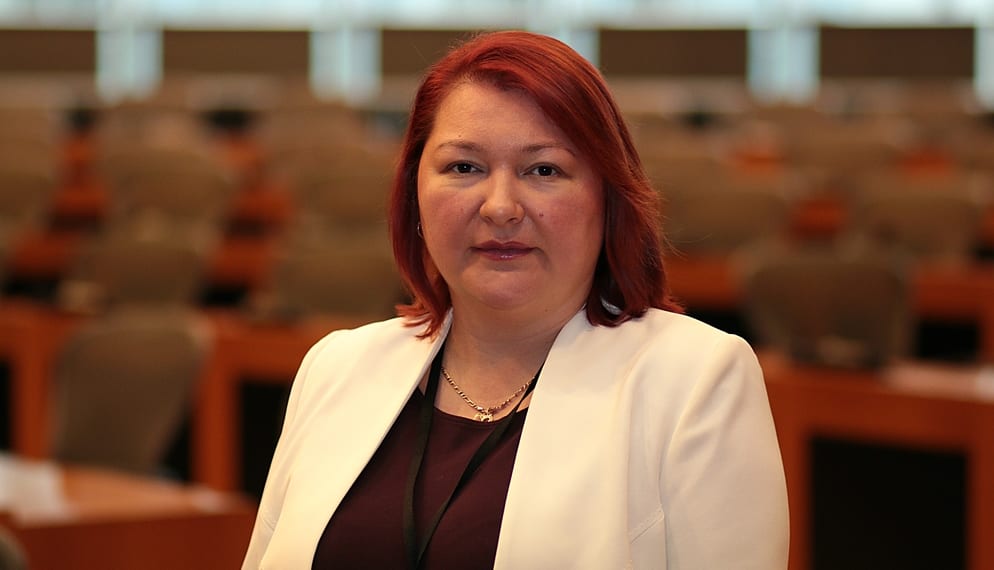
High ranking participants at the conference on the situation of Hungarians in Transcarpathia
2020. 10. 14.
On the 1st of October, Andrea Bocskor MEP held the online conference „Ukraine and Transcarpathia during the COVID -19 pandemic ahead of the local elections”. The aim of the event was to highlight the current situation of the Hungarian minority in Ukraine, the assistance offered to Ukraine from the European Union and Hungary, and the importance of the local elections for Hungarians in Transcarpathia.
As the host of the event, Andrea Bocskor pointed out that the coronavirus outbreak in spring of 2020 has created unexpected challenges for countries inside and outside the European Union: challenges for society, health, and education. From the perspective of the last six month, it is possible to summarize these experiences: how Ukraine handled the situation, what were the experiences of the Hungarians in Transcarpathia during this period, and how the EU and Hungary provided assistance to Ukraine.
Olivér Várhelyi, Commissioner for Neighborhood and Enlargement policies, outlined in his keynote speech the EU assistance to Ukraine, the decentralization reforms through the EU Association Agreement with Ukraine, and the new EU tenders, which aim to solve the severe problems caused by the epidemic. The Commissioner stressed that they are monitoring how Ukraine is managing the concerns of its minority peoples. He also highlighted that the Ukrainian government has to consider minorities as partners and involve them in preparing the new minority law that is being drafted. Várhelyi pointed out Ukraine has to fully implement the Venice Commission’s recommendation on education and language law.
László Brenzovics, the president of the Cultural Alliance of Hungarians in Sub-Carpathia (KMKSZ) and the Hungarian Party in Ukraine (UMP), reported that health care in Transcarpathia was unprepared for the coronavirus epidemic, so in spring, KMKSZ initiated a charity fundraising to purchase protective equipment and disinfectants. Brenzovics considers it a problem that the Ukrainian authorities have been gradually restricting minority rights and obstructing Hungarian organizations and the work of their leaders. He stressed that the new electoral system would present many difficulties and challenges, but the KMKSZ will struggle to maintain advocacy. The President of KMKSZ asked the EU Commissioner to promote, as far as possible, the establishment of new border crossing points in Transcarpathia, that shares borders with four European Union countries.
János Árpád Potápi, State secretary for national policy in Hungary, summed up Hungary’s support for Ukraine’s fight against the coronavirus epidemic, and also emphasized the importance of the upcoming elections. Potapi assured the Hungarian community in Transcarpathia of further support from the Hungarian Government.
At the conference, Ildiko Orosz, President of the Ferenc Rákóczi II Transcarpathian Hungarian College of Higher Education, spoke about Ukraine’s national minorities’ educational situation. She pointed out that the ethnic schools are getting marginalized, and that if there was the political will to make Hungarians an indigenous minority in Ukraine, the school system could be preserved. Ildikó Orosz drew attention to the fact that Hungarians in Transcarpathia do not ask for more rights than the Ukrainians in Hungary already enjoy: representation in parliament, and the right to use their minority language in schools.
József Barta, First Deputy Chair of the Regional State administration of Transcarpathia, used the Transcarpathian example to present the decentralization process and Ukraine’s epidemiological measures. He drew attention to the fact that the new electoral system makes it challenging to represent Hungarian minority , and the new administrative units also do not favor the interests of the minorities. For example, in the new Beregszász district, which has replaced the old Hungarian-majority Beregszász district, Hungarians are not in the majority.
The last speaker of the conference, Mihály Debreceni, correspondent of MTVA and TV21 Uzhhorod, gave a detailed picture of Ukraine’s public mood in the shadow of the epidemic and the forthcoming local elections.
“I hope future relations between the European Union and Ukraine will pay more attention to the situation of national minorities, and the language and educational rights of the Hungarian community in Transcarpathia. The European values and the path to the European Union is incompatible with the decrease of minority rights. It is a sore point that Ukraine does not currently treat the Hungarian minority community as a partner, but sees them as a problem or burden. Yet the path of Ukraine to the European and Euro-Atlantic integration leads through Transcarpathia and Hungary. Hungary always gives Ukraine a helping hand in difficult situations and intends to continue to do so,” said MEP Bocskor.
In her closing remarks, Andrea Bocskor wished every success to KMKSZ in the upcoming elections. The most important thing in the future is the strong advocacy of Hungarian minority’s interests at all local authority levels.